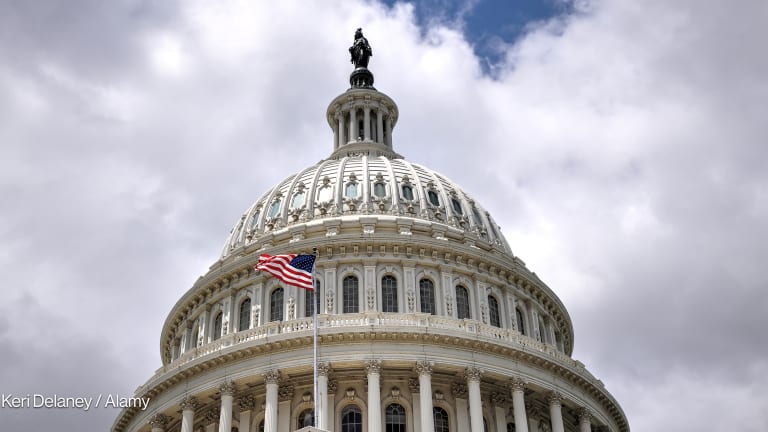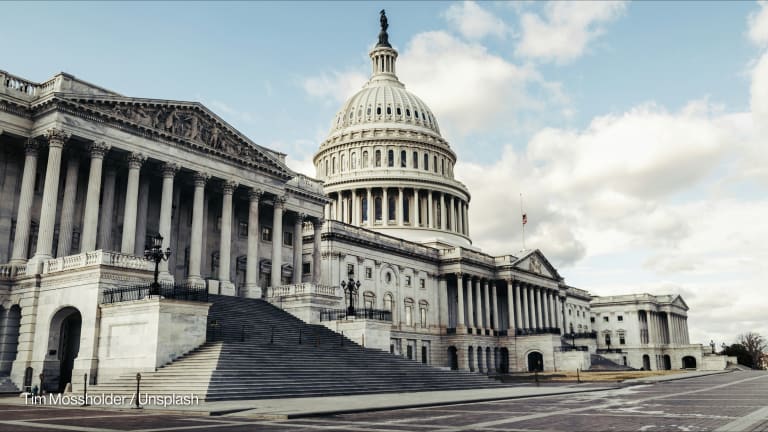
WASHINGTON — The United States Senate Committee on Foreign Relations easily approved legislation to create a new development finance institution Tuesday, leaving the bill awaiting passage in both the House of Representatives and the Senate.
The 21-person committee, in a business meeting Tuesday, briefly discussed the Better Utilization of Investment Leading to Development, or BUILD Act, which would create a new agency that would combine the Overseas Private Investment Corporation and the U.S. Agency for International Development’s Development Credit Authority, as well as expand U.S. development finance capabilities, before approving an amended version of the bill and passing the legislation with just one “no” vote.
See more coverage of the BUILD Act:
► USAID administrator shares view on development finance legislation
► Q&A: OPIC's Ray Washburne on the proposed US development finance institution
► Development finance bill moves forward in legislative process
The amendments to the bill address some key concerns raised by the development community: A need for clarity about the relationship between the new DFI and USAID, ensuring the agency has a strong development mandate, and requiring that the new entity follow high social and environmental standards with safeguards and accountability measures in place.
In the section about the purpose of the new agency, language was added about “using high standards of transparency and environmental and social safeguards,” and the corporation must take “development objectives” of projects it supports into account.
The amended bill also requires the new DFI to have a chief development officer, who will coordinate the corporation’s development policies, manage implementation efforts with USAID, including managing relationships with missions, and work with the employees who are co-designing projects with USAID.
In the latest version, the bill also requires the corporation to have a development advisory council made up of “nongovernmental organizations, think tanks, advocacy organizations, foundations, and other institutions engaged in international development” to advise the board on whether the DFI is meeting its development mandate and what changes might be necessary to do so.
“The only amendments that were offered that would have detracted from the bill were defeated fairly strongly.”
— Sen. Chris CoonsIn addition, the bill now requires a transparent and independent accountability mechanism to “annually evaluate and report to the board and Congress regarding compliance with environmental, social, labor, human rights, and transparency standards, consistent with corporation statutory mandates,” and “provide a forum for resolving concerns regarding the impacts of specific, corporation-supported projects with respect to such standards and provide advice regarding corporation projects policies and practices.”
There were some technical changes about risk mitigation, ensuring that the agency’s funding is additional, is mobilizing private capital that would not otherwise be invested, and requires a policy rationale for investments made in foreign currency, which is a new authority given to the DFI in the bill.
The legislation also created requirements around reporting gender-disaggregated data and on how the DFI will work with minority-owned and small businesses.
The amended version of the bill also added language in several places about how investments would be assessed and evaluated. The agency must: “Develop standards for, and a method for ensuring, appropriate development performance of the corporations portfolio, including, measurement of the projected and ex-post development impact of a project.”
Also added was more language on workers’ rights, requiring all contracts to include clauses around allowing workers to organize and bargain collectively, ensuring that investment only be made in companies or organizations that respect minimum wages, safety conditions, and do not use forced or child labor.
There were two amendments introduced by Senator John Barrasso, a Republican from Wyoming aimed at limiting the size of the new DFI. One amendment sought to reduce the cap of the new agency from the $60 billion proposed in the bill to $35 billion, and the other to eliminate the automatic increase of the cap based on the consumer price index. Both were defeated easily, with the bill’s co-sponsors Sen. Bob Corker, a Republican from Tennessee and the chairman of the foreign relations committee, and Sen. Chris Coons, a Democrat from Delaware, explaining that the $60 billion cap was already a compromise that had been negotiated after some proponents of the bill wanted a $100 billion cap.
Following the hearing, Coons told Devex that he was very encouraged and believes that the changes made by a number of senators “improved the bill, strengthened its environmental and small business and development prioritization. The only amendments that were offered that would have detracted from the bill were defeated fairly strongly.”
While he is confident that in its implementation, the agency will have a development priority, Coons said he understands that some prefer to put more language in the statute and he’s “happy with where the bill ended up.” He is dedicated to staying engaged, as the bill is implemented, and the new agency is created, if the bill passes.
Coons added that he is optimistic the bill will pass before the August recess, but that it will take pressure from the administration and Republican leadership to get the vote scheduled.
“I think we’re years out of date in our DFI. OPIC, a lot of its constraints date back to 1971, and I think we have gradually allowed the world of development finance to pass us by. Even though the United States has the deepest, most complex, most robust capital markets in the world, we have a development finance entity that is one of the smallest, most constrained, and most outdated in the world,” he told Devex. “I think this bill is ready to move and I’m very hopeful it will.”








